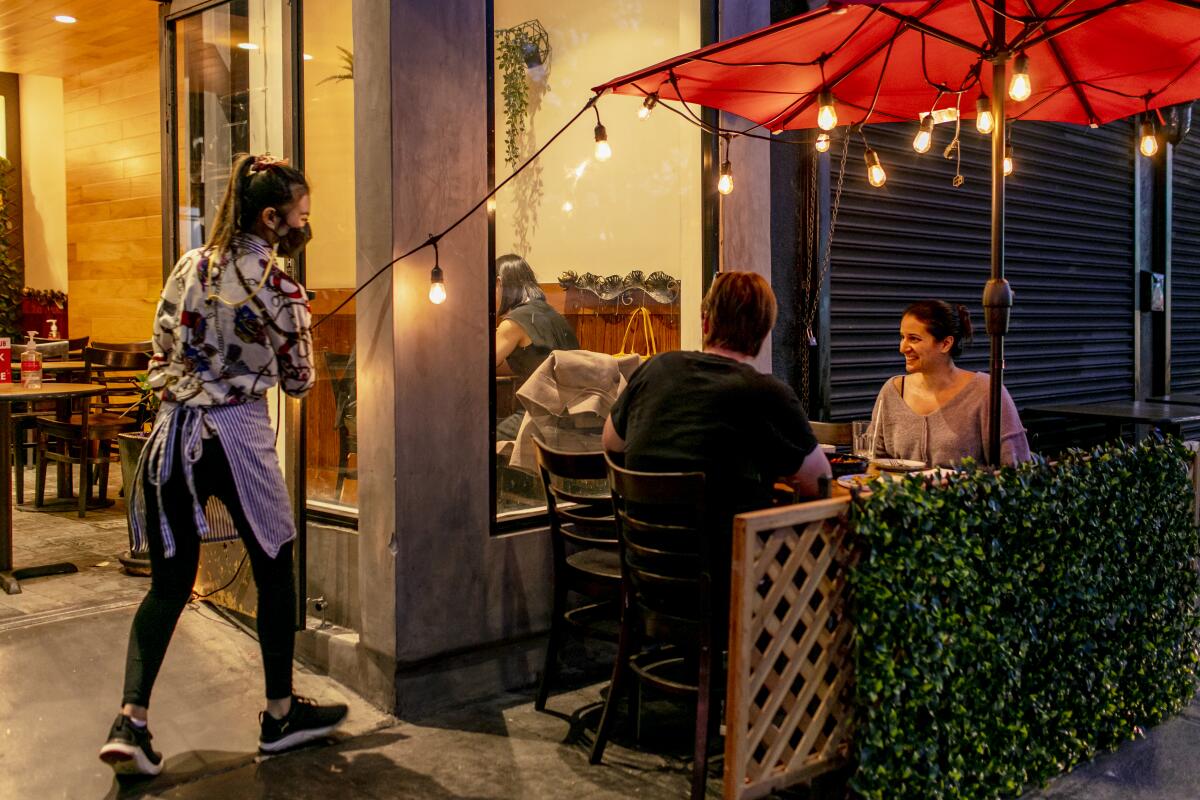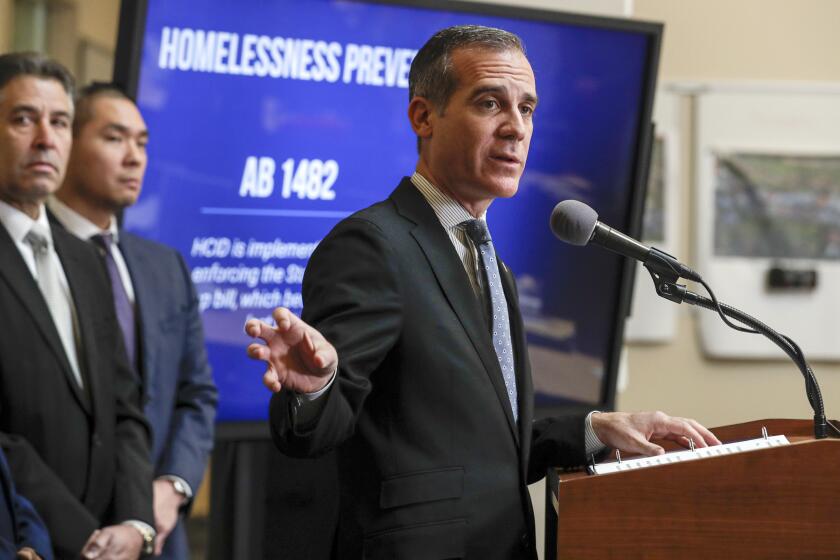L.A.’s minimum wage to rise to $16.04 in July

- Share via
Los Angeles’ hourly minimum wage will rise from $15 to $16.04 on July 1, officials said Thursday.
The city’s wage is tied to the consumer price index as published by the Bureau of Labor Statistics and has risen steadily over the last seven years following a push by city leaders to boost the hourly rate and curb poverty.
The wage will apply to businesses of all sizes, according to the city’s website.
On Jan. 1, California’s minimum wage rose to $15 for employers with 26 or more employees and to $14 for those with 25 or fewer. But cities and counties can set higher floors.
L.A.’s economic landscape in 2022 is far different than it was in 2015, the year city leaders voted for a set of escalating pay increases. High housing costs are fueling the city’s homelessness crisis, and inflation has made some goods more expensive.
Mayor Eric Garcetti, who pushed to raise the minimum wage in 2015, said Thursday the wage increase set to go in effect in July “is the latest reason to celebrate today — and a reminder of how our fight for better wages is far from finished.”
Although local chambers of commerce often oppose minimum wage increases, some businesses accept them as necessary, given the high local cost of living for workers.
Los Angeles Mayor Eric Garcetti says he held his breath when he posed for photos without a mask at Sunday’s Rams-49ers game.
“I totally support it going up,” said Ben Berry, co-owner of four area restaurants, including two in the city, Good Day Thai Kitchen and Cafe and BKK 101 Thai Cuisine.
Workers need the higher wages, he said, to cope with the region’s expensive housing costs.
And apart from any minimum wage ordinance, competition for labor is driving up wages in the city.
“It’s what the market demands,” he said. “If you’re in a high-demand area like the center of L.A., you’ve got to be competitive with your pay because people will just jump ship.”
But the public, Berry said, needs “to understand that’s why food prices go up.”
Shawn Tavakoli, an executive with Beauty Collection, a group of four area stores including one in the city, cites inflation as one reason he opposes hiking minimum wages. “You raise employees’ pay, and the business owner passes it on to the consumer,” he said.
“It went from $12 to $15 in just a few years,” he said. “But it is hard to raise the retail price of shampoo because then you lose customers to competitors.”
Tavakoli said his company pays their sales staff more than the current $15 minimum, but when the floor rises, workers who make more than the minimum also want an increase.
To absorb labor costs, Tavakoli said Beauty Collection has cut the operating hours at its Sherman Oaks store from 10 hours daily to eight hours. That has meant cutting the hours — and therefore the pay — of several of its seven employees.
Stuart Waldman, president of the Valley Industry and Commerce Assn., said officials’ support for the wage hike is “tone deaf.”
“This massive increase will raise prices for consumers while undoubtedly forcing some businesses to cut employees’ hours and consider moving out of Los Angeles,” Waldman said.
More to Read
Sign up for Essential California
The most important California stories and recommendations in your inbox every morning.
You may occasionally receive promotional content from the Los Angeles Times.
















